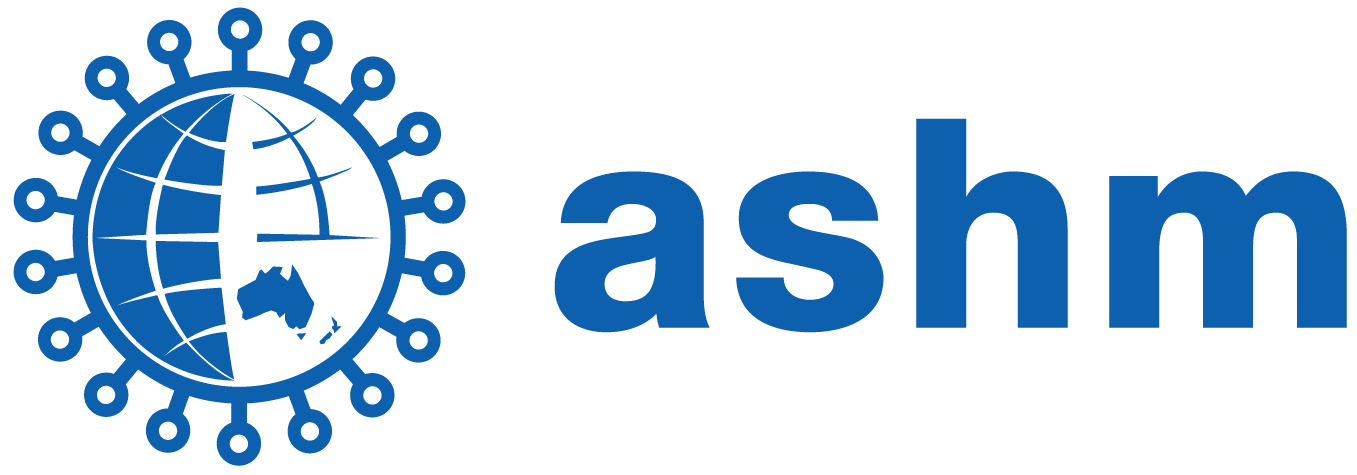Preventing the transmission of HIV to children starts before birth. Without preventative healthcare, HIV can be passed from a woman living with HIV to their unborn children throughout pregnancy, delivery, labour, or breastfeeding (called ‘mother-to-child transmission’). According to the World Health Organisation (WHO), the rate of mother-to-child transmission of HIV across these developmental stages ranges from 15% to 45% in the absence of any intervention.
When effective measures are taken, mother-to-child transmission is avoidable. That’s why it is vital that expectant parents living with or at high risk of HIV are supported through linkages to testing, care, treatment, and peer support services. Countries are encouraged to integrate these services under a triple elimination approach, which includes preventative measures against mother-to-child transmission of syphilis and hepatitis B alongside HIV. The WHO’s essential triple elimination measures include:
- Testing of pregnant women and their partners during regular visits to antenatal care clinics
- Prompt intervention and counselling for mothers and partners who test positive to any communicable diseases
- Consistent, lifelong care and treatment for mothers living with HIV, commonly antiretroviral therapy (ART)
- Vaccination against hepatitis B at birth.
While there has been significant improvements in reducing mother-to-child transmission globally, inequitable access to antenatal services remains a barrier to achieving triple elimination.
Prevention of mother-to-child transmission initiatives in Asia and the Pacific
To help end mother-to-child transmission of HIV, ASHM and our partners across Asia and the Pacific are working together with community to build capacity and create linkages to essential antenatal and health services.
Mentor Mothers in Papua New Guinea
Mentor Mothers play a pivotal role in supporting mothers living with HIV and preventing mother-to-child transmission in their communities.
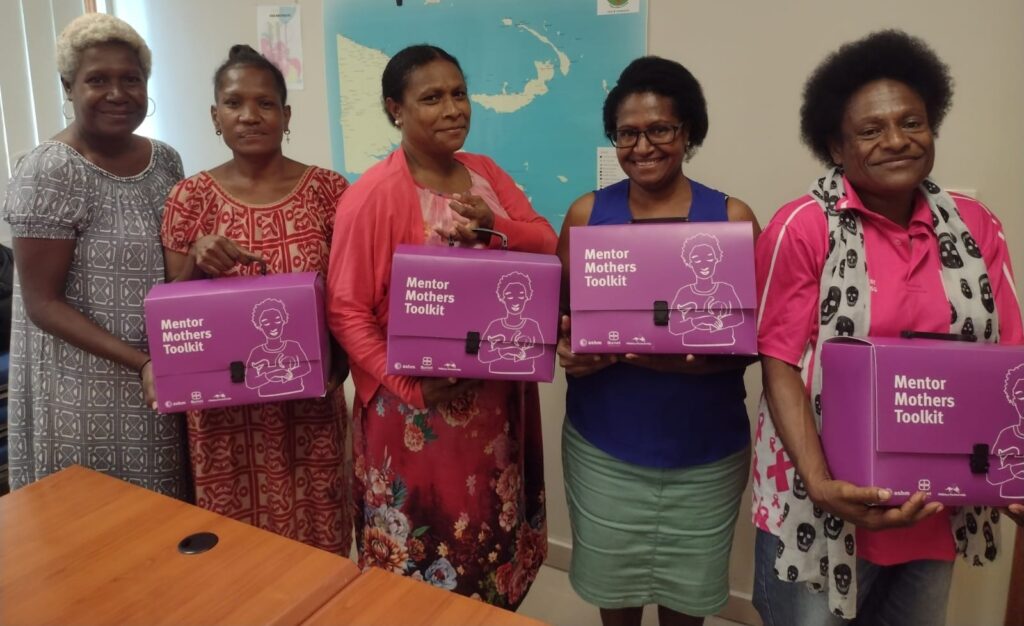
Peer support can be an effective tool for improving adherence to HIV treatment and linkages to care. Connecting pregnant women to HIV testing, treatment and care through integrated antenatal care services is particularly important in Papua New Guinea given only an estimated 19% of pregnant women in the country knew their HIV status in 2019.
The benefits of peer support are why women and mothers living with HIV are at the centre of the Papua New Guinea-based Mentor Mothers initiative. Through education on HIV, workshops on mentoring, and counselling training, women living with HIV are supported to become ‘Mentor Mothers’. In their roles, Mentor Mothers provide educational and emotional support to women living with or at risk of HIV and reduce the risk of parent-to-child transmission.
The inaugural group of Mentor Mothers co-designed a Mentor Mother Toolkit with ASHM and the Burnet Institute, alongside program partners the Papua New Guinea National Department of Health and Igat Hope. Each kit contains resources to support Mentor Mothers to feel confident having conversations with women living with HIV about important measures to prevent transmission to their infants— such as adhering to ART treatment throughout pregnancy and breastfeeding and encouraging supervised birth at a medical facility.
Supporting Triple Elimination in Papua New Guinea and Timor-Leste (STEPT) Project
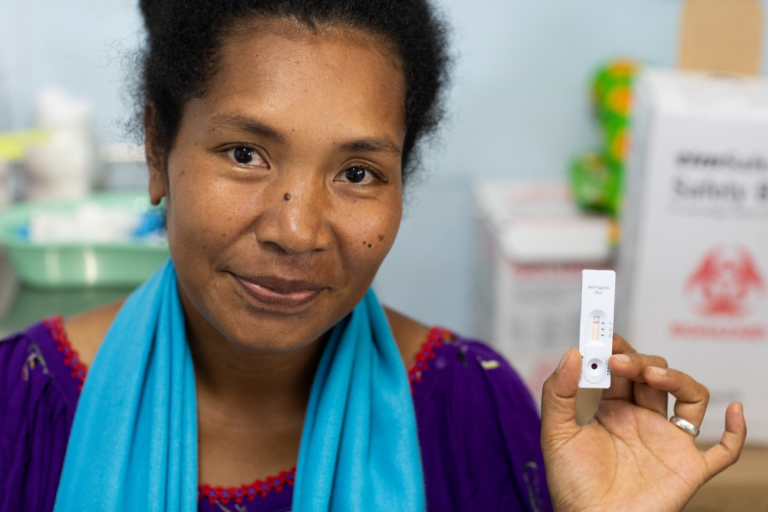
HIV, hepatitis B and syphilis remain significant public health concerns. The prevention of mother-to-child transmission is a key priority – and entirely possible through simple interventions like antenatal screening of pregnant women and their partners, early treatment, and timely vaccination for newborns.
Since 2022, ASHM has worked in partnership with local organisations and Department/Ministry of Health in Papua New Guinea and Timor-Leste to support national efforts to achieve triple elimination. We partner with the Catholic Church Health Services in Papua New Guinea and Maluk Timor in Timor-Leste to deliver triple elimination training and clinical mentoring to local healthcare providers. The training provides healthcare providers with the skills, confidence and knowledge to deliver HIV testing and treatment to parents helping prevent mother-to-child transmission. We also offer support to Ministries of Health with plans for implementation of triple elimination services.
The STEPT project is supported by the Australian Government through the Department of Foreign Affairs and Trade’s Australian NGO Cooperation Program (ANCP) and ASHM Members.
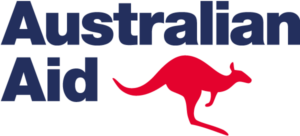
Sharing innovations for triple elimination in the Philippines
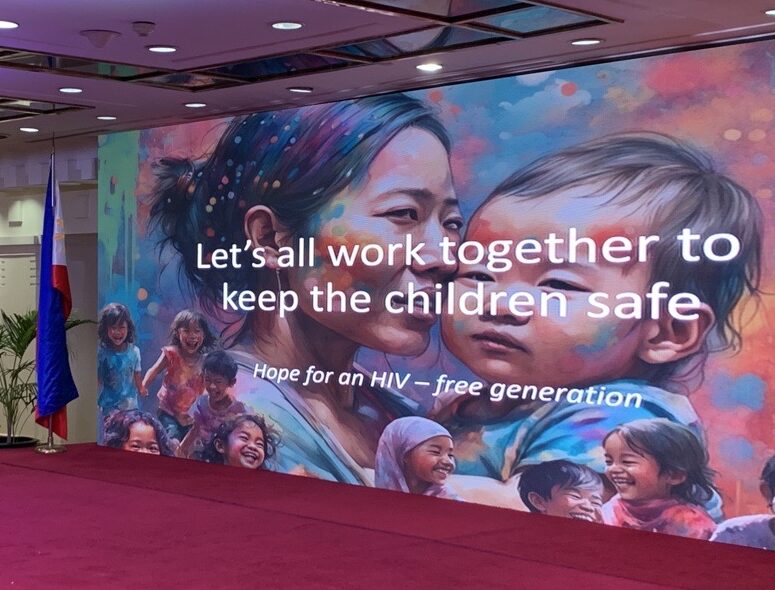
In 2023, ASHM co-hosted the HIV and AIDS National Treatment Hub Conference in the Philippines, convening delegates from across Asia to share the latest advancements and approaches to triple elimination.
